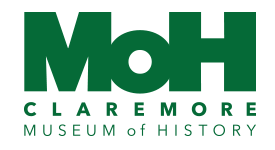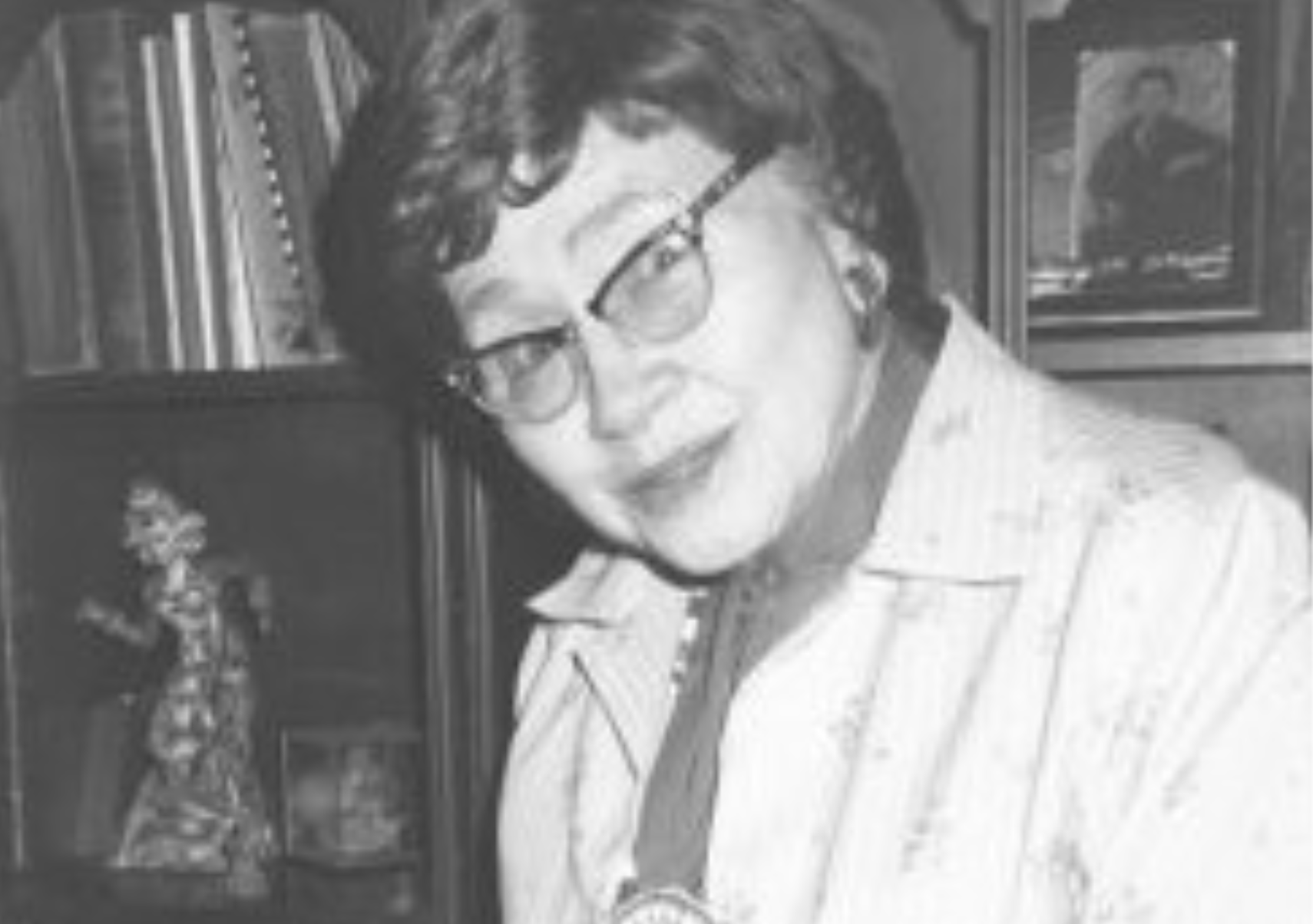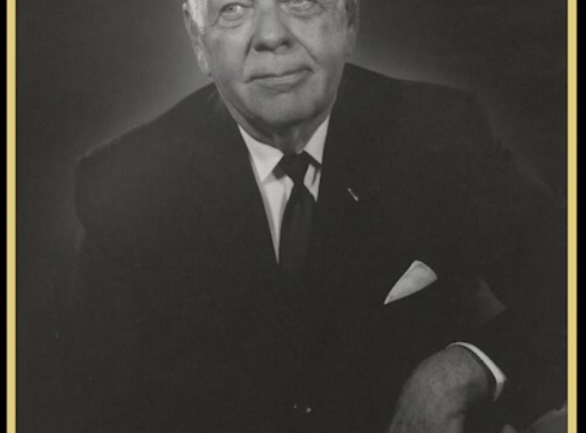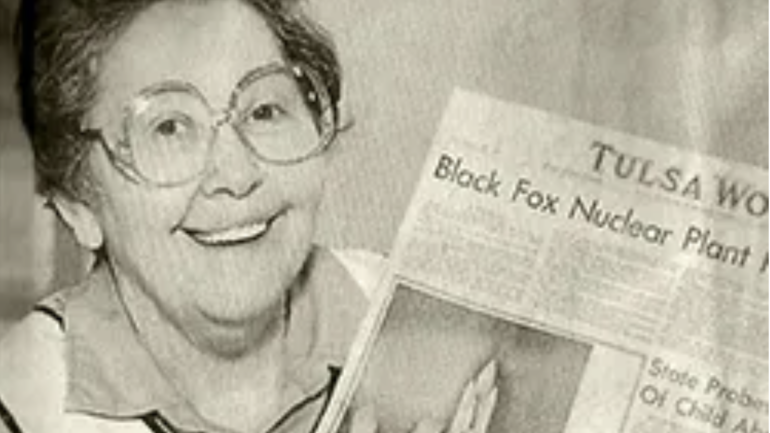Telling the History of Claremore…one story at a time
OKLAHOMA’S POET LAUREATE, EMERITUS
Oklahoma Poet Laureate, Emeritus Maggie Culver Fry was born near Vian, Oklahoma in 1900. Her parents lived a mile from her maternal grandparents, and she spent much time with her grandparents. Her maternal grandfather, George Deerskin Waters, was of mixed Cherokee heritage and was orphaned at an early age because his parents died on the Trail of Tears from Georgia west to the Cherokee lands in Oklahoma. Mr. Waters took the name of Waters in his youth though his true surname was Deerskin. In his adult years he was known to his fellow Cherokee tribesmen as George Buckskin, buckskin being the common name for deerskin.
When she was eight years old, her grandfather bought and moved to a ranch ten miles north of Vian. The ranch was a piece of level land ringed by high rising hills. This place bore the name of Buckskin Hollow. Many of her girlhood days were spent in Buckskin Hollow playing and listening to her grandparents talk of earlier times.
In her tenth or eleventh year, she wrote her first poem. It was about modern inventions with God being the greatest inventor of all. In her teens, Maggie’s father became ill and Maggie, the oldest of nine children, moved to Muskogee to work. After three years there, she went to Porum to live with an aunt and enter high school at the age of 20. In her junior high school year, her health failed due to her strenuous schedule.
In the six years that Maggie had been away from home, her parents had moved from Vian to Verdigris, a town three miles from Claremore. She went there to be with her family. Shortly after joining her family, she met a young man who lived on his family’s farm north of Verdigris. His name was Merritt Fry. Several months later, they were married and went to live on the farm. They reared two sons, Williams Bourke Fry and Victor Anderson Fry.
Shortly before the birth of her second son, Mrs. Fry entered a magazine writing contest and won second place. Twenty years would pass before she would begin her writing career. After World War II was declared and the Fry sons entered military service, Mrs. Fry began to devote more of her time to writing. About this time Mr. Fry gave his wife a gift of a typewriter to encourage her with her writing endeavors. Mrs. Fry taught herself speedwriting and was soon sending typed manuscripts to editors across America. Within a few years she has sold numerous articles, short stories, poems, and plays.
In 1954 Mrs. Fry published her first book, a collection of poems under the title of the first poem in the book, “The Witch Deer”. Based upon a Cherokee legend, this poem traces the Cherokee people across half of this continent from east to west, and through more than a century of changing government. Many of the other poems were of Indian lore. For a decade, starting in 1955, Mrs. Fry was a secretary to Clem McSpadden, who was a member of the Oklahoma Senate. In 1957 Mr. and Mrs. Fry moved to a new home near Claremore.
Mrs. Fry’s second book of poetry, “The Umbilical Cord”, appeared in 1974. Universal in theme, the poems hold truths as eternal as the cord that ties us to forever. The Umbilical Cord was nominated for a Pulitzer Prize.
In early 1977, by invitation, Mrs. Fry submitted a manuscript of poems to the Library Committee of the Five Civilized Tribes. The cover sheet read “Buckskin Hollow Reflections”. In July 1977 Governor Boren named Maggie Culver Fry Poet Laureate of the State of Oklahoma. She continued her writing and published “Sunrise Over Red Man’s Land” and “Cherokee Female Seminary Years”. All in all, she published more than 800 articles, stories, (songs) and poems – many attracting national attention. Mrs. Fry taught at Claremore Junior College and was inducted into the Claremore Hall of Fame in 2015. She died in 1998. Her earthly remains were interred at Claremore’s Woodlawn Cemetery (1998).




